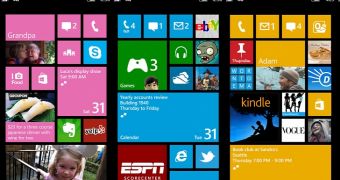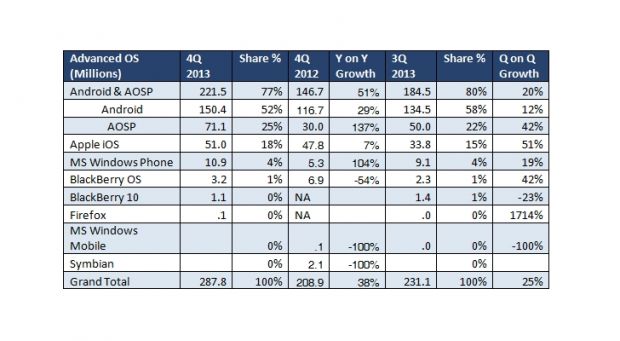Microsoft has put a lot of effort into making Windows Phone one of the top mobile operating systems out there, and it seems that things are finally starting to pay out big.
According to a recent report coming from ABI Research, the mobile OS saw a growth of no less than 104 percent year-on-year in the fourth quarter of the last year.
According to the report, the platform did not manage to grab more than 4 percent of the smartphone market during the entire second half of the last year, but it was capable of growing significantly in terms of sales numbers.
Thus, 10.9 million Windows Phone devices are said to have been sold during the fourth quarter of the last year, compared to only 5.3 million the same period a year before, and 9.1 million units in the third quarter of 2013.
Windows Phone is still far behind rivals Android and iOS, but the platform saw said 104 percent YOY growth and also registered a 19 percent increase in sales quarter on quarter, showing that it is steadily attracting more users to its side.
ABI Research also unveiled that Android continued to dominate the smartphone market, with a 29 percent growth YOY, and an important 137 percent increase in the number of devices that were running under AOSP.
According to said report, forked Android devices (AOSP) have seen 71 million units in shipments, accounting for no less than 25 percent of the market. Certified Android accounted for a 52 percent market share.
“The growth of AOSP is significant for Android’s owner Google, because AOSP does not offer Google’s services (due to their unavailability in China), impacting Google’s ability to monetize the Android ecosystem,” Nick Spencer, senior practice director, mobile devices, said.
Apple’s iOS saw a small, 7 percent growth in the fourth quarter of the last year when compared to the same period of time the year before, but registering a 51 percent increase when compared to the third quarter of the last year.“Apple continues to avoid a low cost smartphone product to target these markets, focusing instead on its traditional premium segment, where growth is harder to achieve due to fast approaching market saturation,” Spence said.
BlackBerry, however, lost even more market share, ABI Research unveiled. The platform went down 54 percent YOY in Q4 last year, dropping to a mere 1 percent market share, although it managed to sell around 4.3 million devices (BlackBerry and BlackBerry 10 included).

 14 DAY TRIAL //
14 DAY TRIAL // 

